January 1 stands as one of history’s most eventful days, witnessing the rise and fall of empires, groundbreaking discoveries, and moments that shaped our modern world across centuries of human achievement.
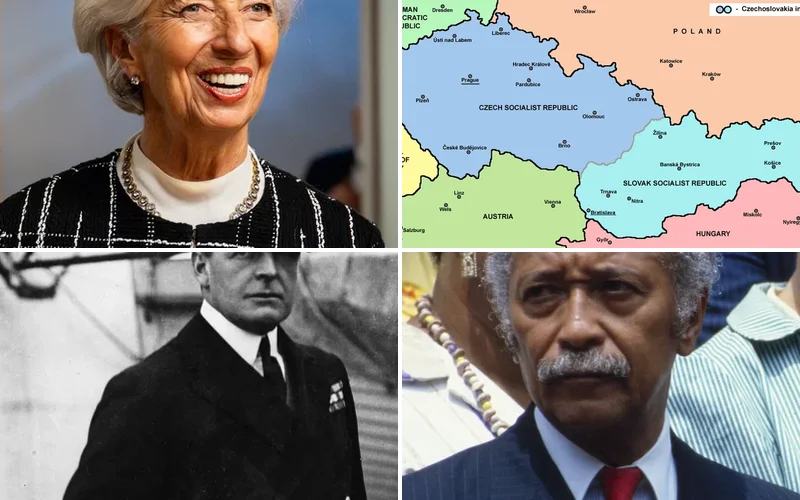
Politics and Government Events on January 1
1901 – Commonwealth of Australia Established
The British colonies of New South Wales, Queensland, Victoria, South Australia, Tasmania, and Western Australia federated as the Commonwealth of Australia on this historic date. Edmund Barton assumed office as the nation’s first Prime Minister, marking the birth of modern Australia.
The federation ceremony in Sydney’s Centennial Park attracted over 100,000 spectators celebrating their new national identity. This peaceful transition from colonial rule to self-governance became a model for other British dominions seeking independence.
1912 – Republic of China Proclaimed
The Republic of China emerged from the ashes of the Qing Dynasty, ending over two millennia of imperial rule. Revolutionary forces led by Sun Yat-sen established Asia’s first democratic republic through this momentous declaration.
The new republic faced immediate challenges from warlords and foreign powers seeking to exploit China’s political instability. Despite these obstacles, the founding established principles of democracy and nationalism that would shape modern Chinese political thought.
1959 – Cuban Revolution Triumphant
Fulgencio Batista’s military dictatorship crumbled as Fidel Castro’s revolutionary forces seized control of Cuba. The dictator fled to the Dominican Republic, abandoning his regime to the advancing rebel army.
Castro’s victory transformed Cuba from a corrupt military state into a socialist republic aligned with the Soviet Union. This revolution would reshape Caribbean politics and Cold War dynamics for decades to come.
1993 – Czechoslovakia Peacefully Divided
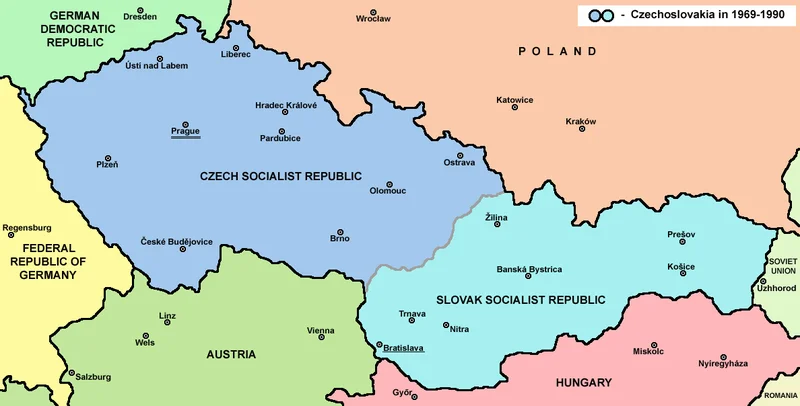
The Velvet Divorce created two independent nations as Czechoslovakia split into the Czech Republic and Slovak Republic. This peaceful dissolution contrasted sharply with violent breakups occurring elsewhere in Eastern Europe.
Both nations maintained democratic governments and pursued separate paths toward European integration. The civilized separation demonstrated how ethnic and political differences could be resolved through negotiation rather than conflict.
1947 – Canadian Citizenship Act Takes Effect
The Canadian Citizenship Act 1946 transformed British subjects into Canadian citizens, establishing distinct national identity. Prime Minister William Lyon Mackenzie King proudly became the first person to receive Canadian citizenship under the new law.
This legislation represented Canada’s growing independence from British imperial control while maintaining Commonwealth membership. The act created a legal framework for Canadian identity that would evolve through subsequent immigration and multicultural policies.
Military and Naval History on January 1
1910 – David Beatty Promoted to Rear Admiral
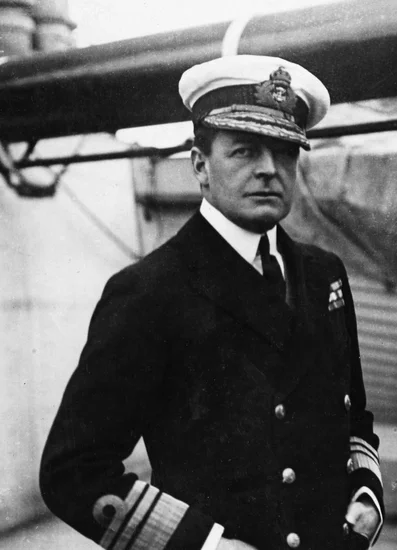
Captain David Beatty received promotion to rear admiral, becoming the Royal Navy’s youngest admiral since Horatio Nelson. His rapid advancement reflected exceptional leadership abilities and strategic acumen during peacetime naval operations.
Beatty’s promotion positioned him for crucial World War I commands, including the Battle of Jutland. His aggressive tactics and charismatic leadership style would make him one of Britain’s most celebrated naval commanders.
1945 – Operation Bodenplatte Fails
The German Luftwaffe launched Operation Bodenplatte, a desperate attempt to destroy Allied air power in northern Europe. Despite initial surprise, the massive air offensive failed to achieve its strategic objectives and severely depleted German pilot reserves.
The operation marked Nazi Germany’s final major aerial offensive, demonstrating the Luftwaffe’s declining capabilities. Heavy German losses accelerated Allied air superiority and hastened the Third Reich’s collapse.
1947 – Bizone Created in Germany
American and British occupation zones in Allied-occupied Germany merged to form the Bizone during the emerging Cold War. This economic union laid the foundation for West Germany’s eventual creation and recovery.
The merger represented Western determination to rebuild democratic institutions in Germany despite Soviet opposition. The Bizone’s success demonstrated how international cooperation could restore prosperity and stability to war-torn regions.
1948 – Kashmir Ceasefire Begins
A United Nations ceasefire took effect in Kashmir one minute before midnight, ending the first Indo-Pakistani War. The armistice established a Line of Control that continues to divide the disputed territory today.
Both nations accepted UN mediation to prevent further escalation of their conflict over Kashmir’s future. The ceasefire created temporary peace but failed to resolve underlying territorial disputes between India and Pakistan.
Science and Discovery Milestones on January 1
1970 – Unix Time Begins
Computer scientists established the defined beginning of Unix time at 00:00:00 UTC, creating a universal standard for digital timekeeping. This timestamp system became fundamental to modern computing and internet infrastructure.
Unix time provided programmers with a consistent method for calculating dates and times across different computer systems. The standard’s adoption facilitated global communication networks and synchronized digital operations worldwide.
1983 – Internet Protocol Activated
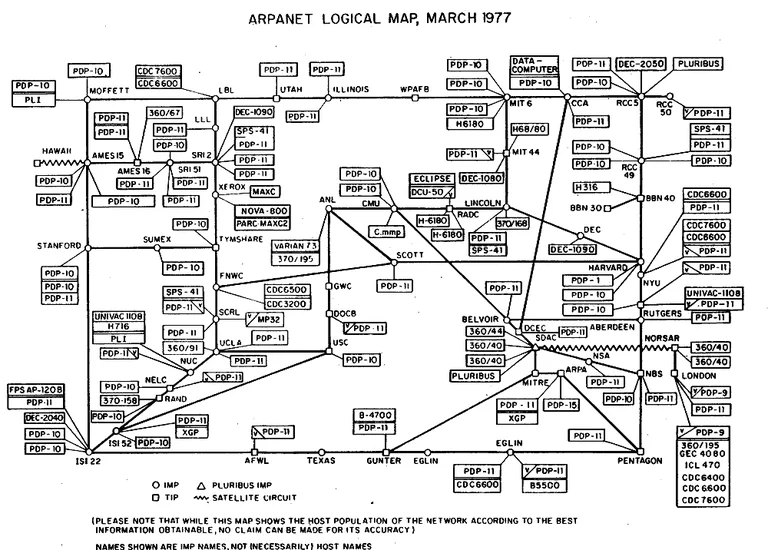
The ARPANET officially adopted TCP/IP as its primary communication protocol, effectively creating the modern Internet. This technical transition enabled different computer networks to interconnect and share information seamlessly.
The protocol switch transformed a limited military research network into the foundation for global digital communication. TCP/IP’s implementation marked the beginning of the information age and revolutionized human knowledge sharing.
1995 – Draupner Wave Detected

Scientists detected the Draupner wave in the North Sea off Norway, confirming the existence of freak waves previously dismissed as maritime folklore. This 25-meter giant wave provided the first instrumental evidence of these extreme ocean phenomena.
The discovery revolutionized ocean engineering and ship design by proving that waves could exceed previously accepted maximum heights. Research into freak waves enhanced maritime safety and improved understanding of ocean dynamics.
1998 – Maldacena Publishes Groundbreaking Physics Paper
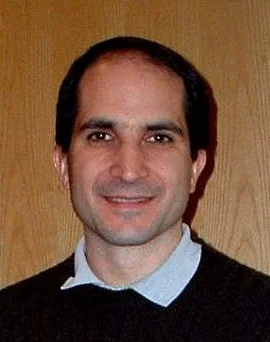
Argentinian physicist Juan Maldacena published a landmark paper initiating the study of AdS/CFT correspondence. His work established revolutionary connections between string theory and quantum gravity, transforming theoretical physics.
Maldacena’s correspondence theory provided new tools for understanding black holes, quantum mechanics, and the fundamental nature of spacetime. The paper became one of the most cited works in theoretical physics history.
Cultural and Arts Events on January 1
1902 – First Rose Bowl Game Played

The first American college football bowl game took place in Pasadena, California, featuring Michigan versus Stanford. This inaugural Rose Bowl established the tradition of New Year’s Day college football games across America.
Michigan dominated Stanford 49-0 in front of 8,000 spectators, showcasing the Wolverines’ superior football program. The game’s success launched the bowl game phenomenon that would become central to American sports culture.
2024 – Mickey Mouse Enters Public Domain
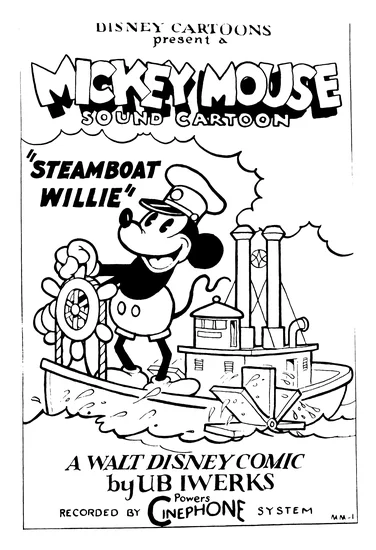
Disney’s copyright protection on Steamboat Willie and the original Mickey Mouse design expired, allowing these iconic characters to enter the public domain. This milestone marked the end of 95 years of exclusive Disney control over their most famous creation.
The copyright expiration opened new creative possibilities for artists, filmmakers, and writers to reimagine Mickey Mouse. Disney retained rights to more recent versions while the original 1928 character became available for public use.
1971 – Cigarette Advertising Banned
Television and radio cigarette advertisements were permanently banned across the United States, ending decades of tobacco marketing to mass audiences. This landmark public health measure reflected growing awareness of smoking’s deadly health consequences.
The advertising ban represented a significant victory for public health advocates fighting against tobacco industry influence. Television networks lost substantial advertising revenue but gained credibility as defenders of public welfare over corporate profits.
Religious and Social Events on January 1
1942 – Declaration by United Nations Signed
Twenty-six nations signed the Declaration by United Nations, formally establishing the wartime alliance against Axis powers. This historic document laid the groundwork for the post-war United Nations organization.
The declaration represented unprecedented international cooperation in pursuit of peace, justice, and human rights. Signatory nations committed to using their full resources against fascism and to building a more stable world order.
1988 – Evangelical Lutheran Church in America Formed

The Evangelical Lutheran Church in America came into existence through a merger of three Lutheran denominations. This consolidation created the largest Lutheran organization in the United States with over 5 million members.
The merger strengthened Lutheran influence in American Christianity while maintaining traditional theological principles. The unified church enhanced its ability to address social issues and provide humanitarian assistance globally.
1944 – David Dinkins Sworn as New York Mayor
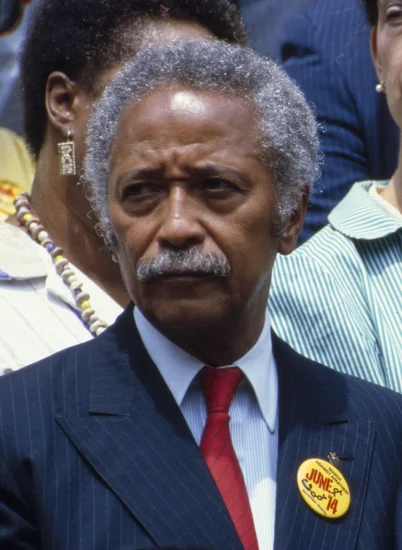
David Dinkins took the oath of office as New York City’s first African American mayor, breaking racial barriers in America’s largest city. His election represented a milestone in the civil rights movement and urban politics.
Dinkins faced enormous challenges including crime, budget deficits, and racial tensions throughout his administration. His mayoral victory demonstrated how coalition politics could overcome historical discrimination and create new opportunities for minority leadership.
Business and Economic Events on January 1
1994 – NAFTA Takes Effect
The North American Free Trade Agreement came into force, creating the world’s largest free trade zone. NAFTA eliminated most tariffs between the United States, Canada, and Mexico, dramatically increasing trilateral commerce.
The agreement transformed North American economic relationships by facilitating cross-border investment and manufacturing. Critics argued NAFTA cost American jobs while supporters emphasized increased consumer choice and economic growth.
1995 – World Trade Organization Established
The World Trade Organization began operations as the successor to the General Agreement on Tariffs and Trade. This international body gained authority to enforce global trade rules and resolve commercial disputes between nations.
The WTO’s creation marked a new era of economic globalization with standardized international trade regulations. Member countries gained access to dispute resolution mechanisms while accepting binding commitments to reduce trade barriers.
1984 – AT&T Monopoly Broken
The original American Telephone & Telegraph Company divested its 22 Bell System companies following antitrust litigation. This historic breakup ended AT&T’s monopoly over American telecommunications and introduced market competition.
The divestiture created seven independent regional Bell operating companies while allowing AT&T to retain long-distance services. This deregulation sparked innovation in telecommunications technology and reduced consumer costs through competitive pricing.
1999 – Euro Currency Introduced

Eleven European Union member nations adopted the Euro as their common currency, creating the world’s second-largest currency zone. The Euro’s introduction represented the most ambitious monetary union in modern history.
The currency launch facilitated trade between European nations while challenging the US dollar’s global dominance. Critics questioned whether diverse economies could share a single currency, while supporters emphasized European integration benefits.
Transportation and Infrastructure on January 1
1914 – World’s First Scheduled Airline Service
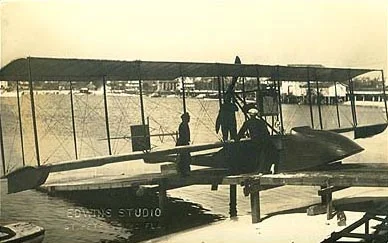
The SPT Airboat Line launched the world’s first scheduled airline service using a winged aircraft. This pioneering flight between St. Petersburg and Tampa, Florida, marked the beginning of commercial aviation.
The 23-minute flight carried paying passengers across Tampa Bay, demonstrating aviation’s commercial potential. This historic service established the foundation for the global airline industry that would transform human transportation.
1923 – British Railways Grouped
Britain’s numerous railway companies were consolidated into the Big Four: LNER, GWR, SR, and LMS. This reorganization created more efficient rail networks while maintaining competition between regional operators.
The grouping improved coordination between railway lines and enhanced passenger services throughout Britain. This restructuring demonstrated how government intervention could modernize transportation infrastructure while preserving private enterprise.
1947 – British Railway Network Nationalized
The British railway system was nationalized to form British Railways, bringing all rail services under government control. This comprehensive nationalization reflected post-war Britain’s commitment to public ownership of essential services.
The nationalization aimed to modernize Britain’s aging railway infrastructure and improve service coordination. Government control enabled systematic investment in new technology while ensuring universal access to rail transportation.
Sports and Recreation on January 1
1985 – First British Mobile Phone Call
Michael Harrison made the first British mobile phone call to his father Sir Ernest Harrison, chairman of Vodafone. This historic conversation launched the mobile phone revolution in the United Kingdom.
The call demonstrated cellular technology’s potential to transform personal communication beyond traditional landline networks. Mobile phones would eventually become essential tools for modern life, revolutionizing how people work, socialize, and access information.
1987 – First Female Pueblo Governor Elected

The Isleta Pueblo tribe elected Verna Williamson as their first female governor, breaking centuries of male-only leadership. This groundbreaking election represented changing attitudes toward women’s roles in Native American governance.
Williamson’s election challenged traditional gender roles while maintaining respect for Pueblo cultural values. Her leadership demonstrated how indigenous communities could evolve their governance structures while preserving their cultural identity.
1932 – Washington Commemorative Stamps Issued
The United States Post Office Department released a set of 12 stamps commemorating George Washington’s 200th birthday. These specially designed stamps celebrated America’s first president and the nation’s founding principles.
The commemorative series highlighted Washington’s enduring legacy in American history and culture. Philatelists and patriots alike treasured these stamps as symbols of American independence and democratic values.
Notable Births on January 1
1919 – J. D. Salinger Born
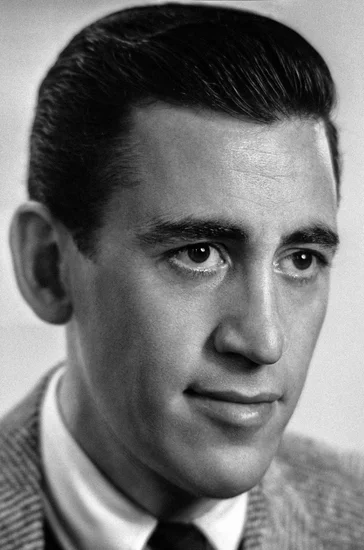
Jerome David Salinger entered the world in New York City, destined to become one of America’s most influential authors. His reclusive personality and perfectionist writing style would define his literary career.
Salinger’s novel “The Catcher in the Rye” captured adolescent alienation and became a cultural phenomenon. His work influenced countless writers while his mysterious personal life fascinated readers worldwide.
1935 – Milt Jackson Born
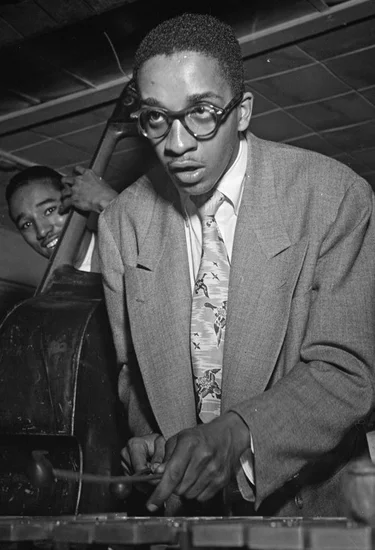
Milton Jackson was born in Detroit, Michigan, and would revolutionize jazz music as a vibraphonist and composer. His innovative techniques transformed the vibraphone from a novelty instrument into a jazz standard.
Jackson’s work with the Modern Jazz Quartet established him as one of jazz’s most respected performers. His distinctive sound and sophisticated compositions influenced generations of jazz musicians and composers.
1942 – Country Joe McDonald Born
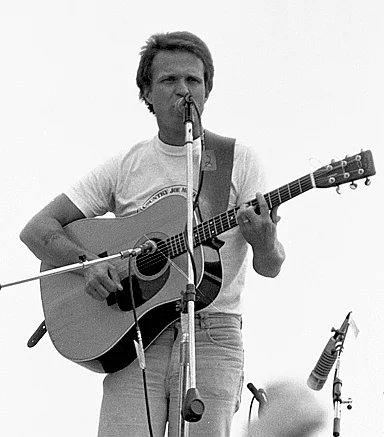
Joseph Allen McDonald was born in Washington, D.C., and became a prominent figure in 1960s counterculture music. His band Country Joe and the Fish became synonymous with anti-war protest music.
McDonald’s performances at Woodstock and other festivals made him an icon of the peace movement. His politically charged lyrics and energetic performances captured the spirit of social change during the Vietnam War era.
1956 – Christine Lagarde Born
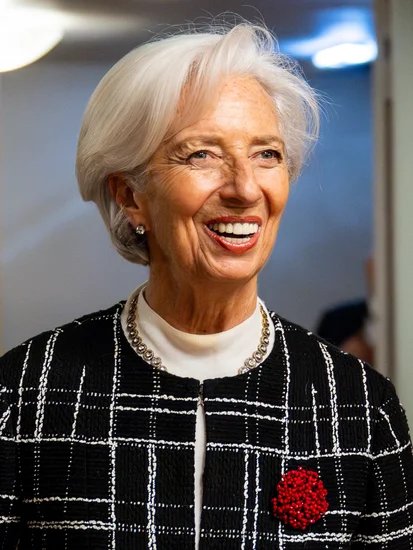
Christine Madeleine Lagarde was born in Paris, France, and rose to become one of the world’s most powerful financial leaders. Her career in law and finance led to groundbreaking positions in international economics.
Lagarde served as Managing Director of the International Monetary Fund and later as President of the European Central Bank. Her leadership during financial crises demonstrated how expertise and diplomacy could address global economic challenges.
1969 – Morris Chestnut Born
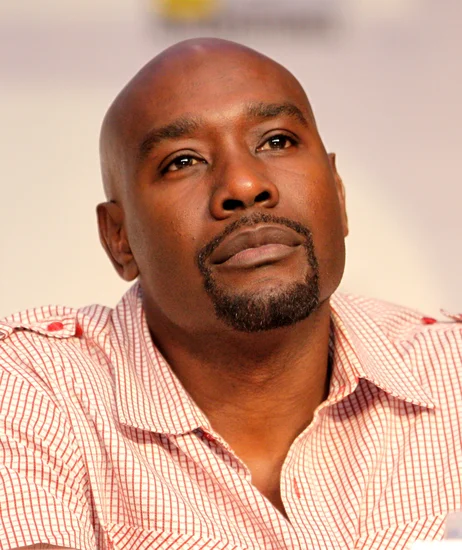
Morris Lamont Chestnut was born in Cerritos, California, and became one of Hollywood’s most recognizable leading men. His athletic background and natural charisma launched a successful acting career spanning decades.
Chestnut’s performances in films like “Boyz n the Hood” and “The Best Man” series established him as a versatile actor. His consistent work in both dramatic and comedic roles made him a beloved figure in American entertainment.
Notable Deaths on January 1
1953 – Hank Williams Dies
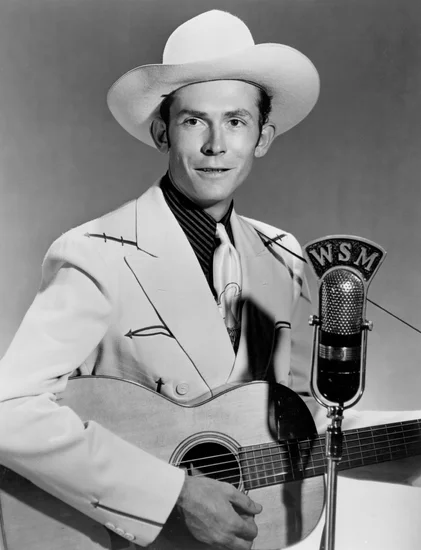
Legendary country music singer Hank Williams died at age 29, ending one of the most influential careers in American music history. His death in the back seat of a Cadillac while traveling to a concert became country music folklore.
Williams’ songs about heartbreak, drinking, and rural life defined country music’s emotional core. His brief but prolific career produced timeless classics that continue to influence musicians across all genres.
1972 – Maurice Chevalier Dies
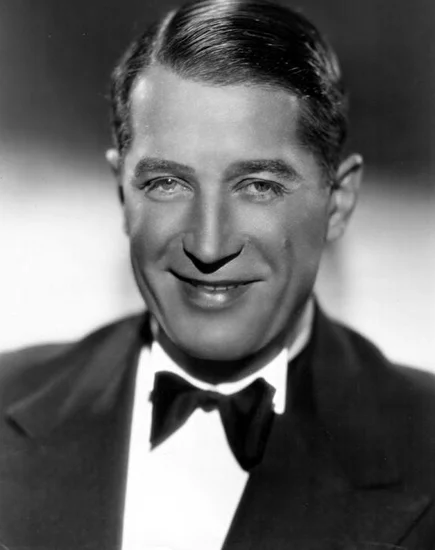
French entertainer Maurice Chevalier passed away at age 83, concluding a career that spanned vaudeville, film, and international stardom. His distinctive accent and charming personality made him a global icon.
Chevalier’s performances in Hollywood musicals and Parisian cabarets showcased his versatility as a singer and actor. His sophisticated style and romantic persona influenced generations of performers in both Europe and America.
1992 – Grace Hopper Dies
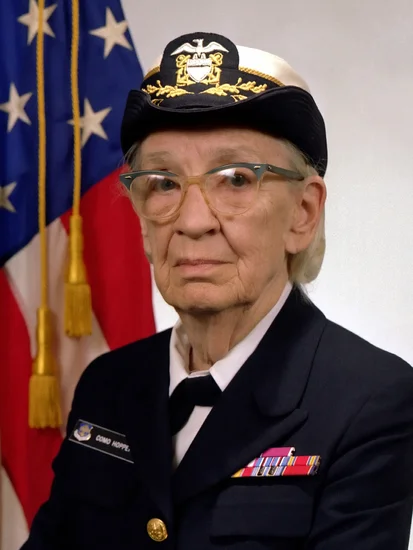
Computer pioneer Grace Hopper died at age 85, leaving behind revolutionary contributions to computer science and programming. Her work developing COBOL programming language transformed how humans communicate with computers.
Hopper’s naval career combined with her programming expertise made her a unique figure in technology history. Her advocacy for user-friendly programming languages made computers accessible to broader audiences beyond technical specialists.
2001 – Ray Walston Dies
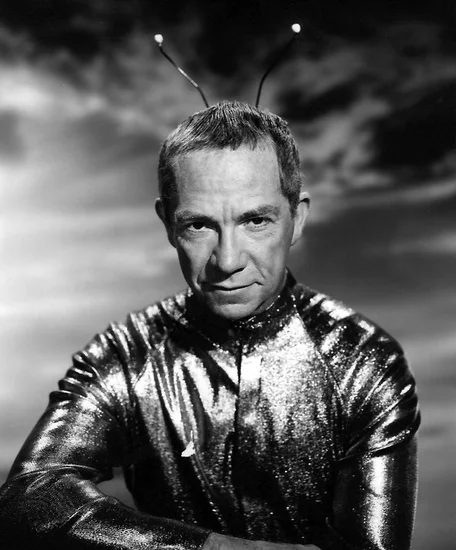
Character actor Ray Walston passed away at age 86, ending a career that brought joy to multiple generations of audiences. His versatility allowed him to excel in both dramatic and comedic roles across different media.
Walston’s portrayal of the Martian in “My Favorite Martian” and Mr. Hand in “Fast Times at Ridgemont High” showcased his range. His distinctive voice and expressive face made him instantly recognizable to television and film audiences.
Holidays and Observances on January 1
New Year’s Day Worldwide

New Year’s Day represents humanity’s fresh start as billions of people worldwide celebrate the beginning of another year. The Gregorian calendar’s adoption made January 1st the global standard for new year celebrations.
Traditional observances include making resolutions, watching fireworks, and sharing meals with family and friends. Different cultures add unique customs while maintaining the universal themes of hope, renewal, and celebration.
Japanese New Year Traditions

Japan celebrates New Year’s Day as its most important holiday, combining ancient Shinto traditions with modern festivities. Families gather for special meals, visit temples, and participate in ceremonial activities that honor ancestors and welcome good fortune.
The celebration includes traditional foods like ozoni soup and mochi rice cakes, each carrying symbolic meaning. Japanese New Year customs emphasize family bonds, spiritual renewal, and hopes for prosperity in the coming year.
World Day of Peace
The Catholic Church designated January 1st as World Day of Peace, calling for global reflection on conflict resolution and human dignity. This observance encourages people of all faiths to work toward justice and understanding.
The Pope’s annual World Day of Peace message addresses contemporary challenges facing humanity. The observance promotes dialogue between different cultures and religions while advocating for nonviolent solutions to international conflicts.
Triumph of the Revolution in Cuba

Cuba celebrates the anniversary of the 1959 revolution that brought Fidel Castro to power and transformed the island nation. This national holiday commemorates the end of Batista’s dictatorship and the beginning of socialist government.
The celebration includes parades, speeches, and cultural events that honor revolutionary heroes and achievements. Cuban officials use this occasion to reaffirm their commitment to socialist principles and independence from foreign influence.
